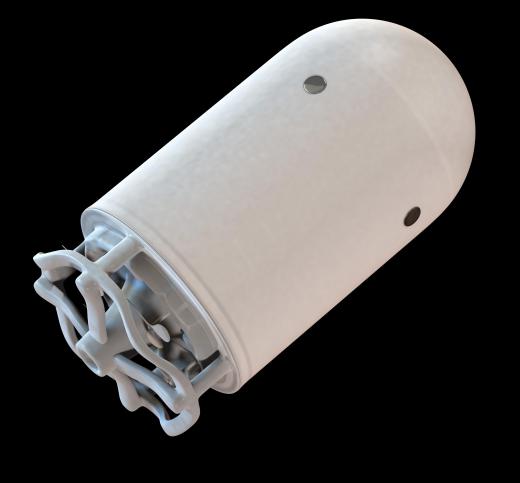What are the Different Types of Nanotechnology Jobs?
 Dee Saale
Dee Saale
Nanotechnology is the budding new technology whereby things are scaled down to the size of a nanometer or one-billionth of a meter and then produced into new devices, applications, or products. For example, scientists working for clothing companies have discovered a way to manipulate the atoms that make up the cloth so that the clothing items are completely stain-resistant. Currently, many nanotechnology jobs are found in the research and development fields, particularly in the field of medicine. Their job positions are usually funded by corporations, universities, or even federal initiatives. Although many nanotechnology jobs require a lengthy educational and training program, there are some jobs in the field that have fewer requirements.
As stated above, one of the primary places to find nanotechnology jobs is at educational institutions across the globe. The jobs are typically at a graduate, PhD, or post-doctoral level. They include positions such as research assistants or associates and postdoctoral fellows or researchers. These jobs also cover a wide range of topics in nanotechnology from the study of nanophysics to microfabrication.

Many of the nanotechnology jobs require some form of engineering degree and are important in the automotive industry. There are some jobs that focus on electrical engineering topics, such as semiconductors or wiring in electric cars. Mechanical engineering topics include nanoscale fluidics, nanoscale manufacturing, and nanoscale electromechanical devices (NEMS). They are important in both the automotive and the biotechnology fields. Chemical engineering can also encompass nanotechnology, such as the development of a nanoparticle that improves plastic, rubber, or another substance.

If someone is interested in finding a nanotechnology job, but does not have a doctorate or graduate level education, there are options. For example, there are a rising number of laboratory technician jobs available in nanotechnology. These jobs typically require an associate's degree and a few years work experience in an engineering-focused laboratory. A nanotechnology laboratory technician may upkeep laboratory equipment, help staff use lab instrumentation, work with samples, collect data, and keep detailed records.

As nanotechnology becomes more mainstream, there will be additional jobs in retail, sales, and marketing. The sales representatives will likely be responsible for understanding the basic science behind the product they are selling. Medical nanotechnology companies will use the representatives, much like the pharmaceutical companies use pharmaceutical sales representatives. The representatives will go to doctors’ offices and hospitals, teaching doctors and nurses how to use the nanodevices, and selling the devices to them. The marketing jobs will focus on explaining why a particular company is the correct choice for a particular nanodevice or application.

As scientists develop new uses for nanotechnology, more nanotechnology jobs will be created. The current jobs are only the beginning of endless opportunities. It is up to the individual to discover where her interest remains – sales, fabrication, research, development, or even marketing.
AS FEATURED ON:
AS FEATURED ON:














Discussion Comments
What is the pay grade for this job?
Post your comments